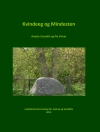In ‘Women under Polygamy’ by Walter Matthew Gallichan, the author delves into the intricate dynamics of polygamous relationships and the impact it has on women. Gallichan presents a detailed analysis of the psychological and emotional effects of polygamy on women within various cultures, providing valuable insights into the patriarchal structures that govern such unions. Through a blend of historical research and anecdotal evidence, the book explores the complexities of polygamy and challenges societal norms surrounding marriage and gender roles. The literary style is academic yet engaging, making it accessible to both scholars and general readers interested in gender studies and sociology. This book serves as a valuable resource for understanding the lived experiences of women in polygamous relationships, shedding light on a controversial but important topic. Walter Matthew Gallichan’s expertise in social sciences and gender studies shines through in his comprehensive examination of this complex subject matter. Drawing from his extensive research and academic background, Gallichan offers a compelling and thought-provoking analysis of polygamy and its impact on women. ‘Women under Polygamy’ is a must-read for those seeking a deeper understanding of gender relations and cultural practices.
عن المؤلف
Walter Matthew Gallichan, born in the mid-19th century, was a prolific British author and journalist who addressed a wide range of social and health-related issues in his works. He was particularly known for his progressive views on women’s rights and sexual education during an era when such topics were often taboo. Gallichan’s scholarly contributions include a critical examination of polygamous practices in his book ‘Women under Polygamy’ (1915), wherein he scrutinized the impact of polygamous unions on women, delving into cultural, psychological, and social ramifications. His writings often highlighted the oppression faced by women and advocated for gender equality, distinguishing him as an early feminist voice in the literary community. His other works delved into the areas of marriage, love, and sexual health, reflecting his broad interests in the dynamics of human relationships. Gallichan’s literary style combined empirical observations with a narrative technique that aimed to reach a broad audience, thus effectively disseminating his reformist ideologies. His contributions to social commentary and reform make him a noteworthy figure in the landscape of early 20th-century literature and advocacy for women’s rights.












